In the arena of electric vehicles, there's a perilous gap between design and delivery. At one point or another, most major automakers have fallen into this abyss. Some of them are still trying to climb out, while others appear to be setting up camp down there. Over the past few months, it's been the turn of Ford Electric to fall in.
Where Volkswagen Group was once the king of EV press releases, with the ID.3 available to order and the ID.4 electric crossover waiting in the wings for North America, the German automaker's electrification efforts are now entering the real world. Nature abhors a vacuum, of course, and it seems like Ford Electric is more than willing to rush in and fill that void with breathless promotion and baseless claims.
Here are three examples of Ford's current electrification efforts having the scent of Mustang manure, as well as a clear route for the iconic American brand to make good on its promise of an all-electric future.
1. Go (a Little Bit) Electric!
At the Frankfurt Motor Show this past September, Ford proudly proclaimed "Go Electric" on large signs around the show hall. The problem? Ford had only the Kuga and Explorer plug-in hybrids on display, along with a handful of hybrids that can't even be plugged in.
And my "Shame On You" award for the Frankfurt Motor Show goes to @Ford, for all their "Go Electric" signage, but showing up with zero all-electric cars, just a couple PHEVs & a bunch of hybrids. Note to Ford: Hybrids aren't really electric cars. #IAA2019 pic.twitter.com/ib6nqPqwYa
— Tom Moloughney (@tommolog) September 11, 2019
It's hard for customers to go electric when there's no all-electric option and only a small selection of PHEVs based on existing gasoline-inspired models. Not even a concept model of the promising Mustang-inspired all-electric SUV set for next year was on display.
While plug-in hybrids will clearly play a role in the transition to electric vehicles, such bold announcements and grandiose signage are at odds with the reality of what Ford currently has to offer anyone in the market for an EV.
Watch Ford revealing an electric Mustang Lithium, which it says will never make it to production and click to subscribe to Torque News Youtube channel for daily automotive thought-provoking news analysis.
2. A Large Charging Network (Without Lifting a Finger)
The most recent announcement from Ford has somehow been hailed as a breakthrough by more generous media outlets, whose headlines leave out some key details. "Ford Announces Largest Charging Network in the US," squawks CNN International, before explaining that it isn't the automaker that has achieved this feat and, in fact, Ford currently has no new EVs to take advantage of what it hasn't created.
The reality, again, is significantly different from the press release.
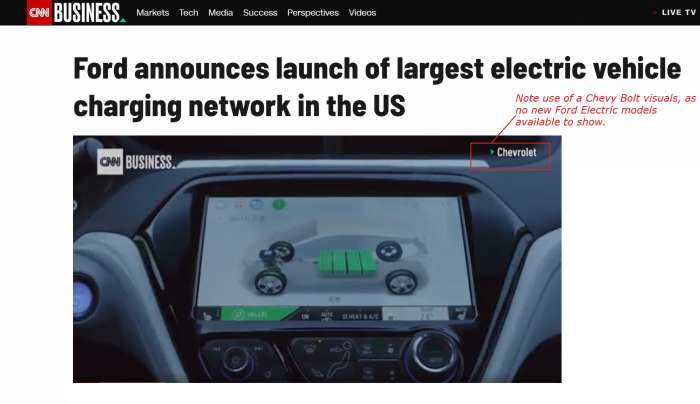
Ford has partnered with Electrify America and Greenlots to access their existing charging sites through the Ford Pass app. While it's encouraging to see a manufacturer understand the importance of its mobile app and helping direct EV drivers to nearby charging stations, Ford isn't building anything or even investing in new infrastructure, as some headlines suggest. It is simply tapping into existing charging networks established by other organizations, which are accessible to most non-Tesla EVs.
Indeed, everyone from Audi and Porsche to Harley Davidson has signed deals to provide some amount of free charging on the Electrify America network. None of them, however, have claimed to create the largest charging network in North America. Ford's tenuous claim is another stretch, at best, and can again be answered with the question: "what EVs will Ford have on the road over the next 12 months?"
3. Electric Ford F-150 Hauls a Whole Train
We have to admit that this PR stunt was actually pretty cool and stakes Ford's ambitions in a key segment of the all-electric marketplace where no automaker has yet delivered: pickup trucks.
At the time of writing, Tesla hasn't unveiled its pickup and the Rivian R1T is still a year away. So when the company released footage of an all-electric Ford F150 hauling a million-pound plus worth of train carriages, media outlets from around the automotive world and beyond sat up and took notice.
As the video below from popular YouTuber Jason Fenske explains, this wasn't quite as momentous a feat as it seems on the surface.
Nonetheless, this particular claim at least featured a prototype EV in a popular vehicle segment. It painted the move to electrification in a positive light and challenged common misconceptions that electric vehicles are underpowered, so we'll have to give Ford a pass on this one.
Indeed, none of these questionable claims undercut the potential for Ford to deliver exceptional electric vehicles in the near future.
The Mustang-inspired electric SUV is rumored to deliver a range of 300 miles and hints at high-performance, despite the heavy and cumbersome vehicle category. It appears to stay rooted in Ford's heritage, without compromise or the company playing down expectations.
Similarly, an all-electric Ford F-150 that combines the benefits of an electric drivetrain with the capabilities of a commonly seen, highly regarded pickup truck could be a game-changer for electrification.
It's easy for fans of petrol heads to dismiss the trucks from Tesla and Rivian as toys for coastal playboys, but an electric version of the most popular truck in North America cannot be overlooked so easily. Ford's $500 million investment in Rivian, announced earlier this year, should also prove to be a powerful combination in this endeavor.
The bottom line is that Ford should be commended for its efforts to communicate EVs in a positive way, but shouldn't get so far ahead of where its electrification efforts currently lie. With only the limited Ford Focus Electric on the road as a pure BEV offering, alongside the Ford C-MAX and Fusion Energi lines available as plug-in hybrid options, the automaker has a lot to prove before its claims to the electric transition will stand up to scrutiny.
Like Volkswagen before it, there are only so many bold press releases that prospective EV buyers will stomach before they demand to see a vehicle they can test drive or for which they can at least put down a deposit. 2020 will be a big year for electric vehicles in general, but it falls to Ford to prove that the brand will not only talk the talk but walk the walk towards electrification.
Do you think Ford has what it takes to turn its EV promises into reality, or is this all a steaming pile of Mustang manure? Let us know in the comments!
Steve Birkett is an electric vehicle advocate at Plug & Play EV. You can follow him on Twitter at @Plugandplayev, Instagram and Youtube at Plugandplayev Channel to send him EV news tips.
Set Torque News as Preferred Source on Google


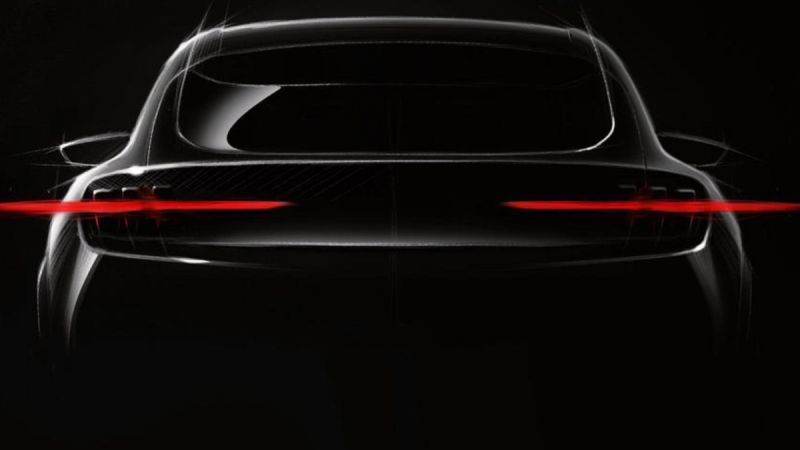






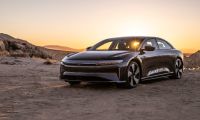
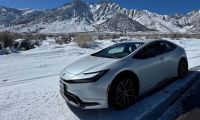
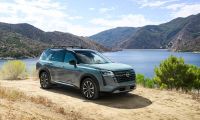
Comments
Actually, I see Ford as being
Permalink
Actually, I see Ford as being in a similar position to GM and Toyota, and ahead of FCA/Chrysler. GM kept their Bolt BEV, but dropped their Volt PHEV, and has no other EV offerings. Toyota takes a broader EV approach expanding their hybrid models, and adding PHEVs, but is not committing to BEVs most likely because of their poor choice of supporting FCEVs (hydrogen), and Honda has made similar EV product decisions. Hyundai has probably made the best variety of EV offerings currently, having 3 BEVs, a couple PHEVs, and several hybrid models. I am glad to see that Ford didn't make the same mistake that GM did, killing off their PHEVs right away, but like GM they are eventually killing off their small economy cars and PHEVs, and like GM they are very slow in coming out with their promised BEV models, giving us only teasers. I blame the government in cutting the support for automakers to produce less smog and build vehicles with better gas mileage, Without proper incentives the large automakers will choose not to change, following stockholder's demands to make the most short term profit. Thankfully, buyers have BEV options from Tesla, Hyundai, Chevy and others to drive them to stay competitive with EVs.